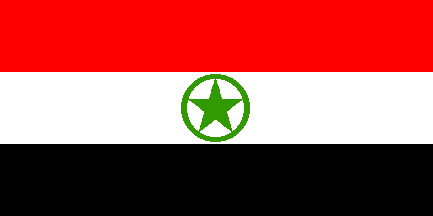
Today is World Refugee Day, a day of remembrance and recognition of the world’s refugees, of whom there were an estimated 11.4 million in 2007, according to the office of the United Nations High Commissioner for Refugees (UNHCR). Some groups number in the millions—like the 3 million Afghans mainly in Pakistan and Iran, or the 2 million Iraqis in Jordan and Syria. Other groups are much smaller, like the few hundred Ahwazi refugees in Damascus, Syria.
While the number of Ahwazis in Syria may be small, their protection concerns are not. Syria, despite its “Pan-Arab” philosophy, maintains tight and secretive relations with Iran. Iranian refugees in Syria are continuously harassed, followed, intimidated, and jailed—not for transgressions against the Syrian state, but for their political activities and opinions in Iran. Last December, four Ahwazi refugees were forced to flee Damascus to seek asylum for the second time, this time in Lebanon. They had been threatened with extradition to Iran, as well as attacks on them and their families. UNHCR, much to its credit, accepted these men once they reached Lebanon, and agreed to continue processing their cases for third-country resettlement. Their cases remain pending.
Other Ahwazi refugees in Syria are not so lucky. In May 2006, Syrian authorities deported several Ahwazi refugees plus a Dutch national of Ahwazi origin; the men were arrested upon return, and according to friends and family in Iran, severely tortured in prison, where they remain, pending execution. Despite the international outcry over Syria’s deportation of these recognized refugees, the damage was done, and Syria’s blatant violation of the principle of non-refoulement of refugees barely acknowledged.
Then, in March 2007, Syrian agents rounded up six young Ahwazi refugees and held them in one of many secret security detention facilities in Damascus. After forty days’ incommunicado detention, the authorities suddenly released five of the men, who were then resettled to a safe third-country. The fate of the sixth young man remained unknown until the end of the year, when he too was suddenly released and allowed to be resettled well outside of Syria. For nine months, however, neither UNHCR nor the family of the 21 year old man were allowed access to him, or even acknowledgement that he was still alive, or even still in Syria.
Again, despite international attention to this case and attempts at many levels to secure information and release of the detained men, Syria’s harassment of Ahwazi refugees continued unabated. A month later, another Ahwazi refugee was arrested at the airport as he prepared to board a flight to a safe third country. He was held for several weeks, and then suddenly released. His case for resettlement had been pending departure for more than six months, held hostage to slow processing and inadequate attention being paid to Ahwazi cases in the Damascus office of UNHCR.
Then, in the early morning of 5 March 2008, a 31-year old Ahwazi refugee named Saeed Hamadi was about to depart for resettlement when he too was arrested at the Damascus airport. The five Ahwazi men who were there to see him off were likewise detained and questioned, but unlike Saeed, not arrested. Saeed disappeared into one of Syria’s detention centers, where he remains, more than 100 days later. Requests by UNHCR to Syrian authorities have fallen on the typical deaf ears of the regime. Appeals to the UN and International Red Cross/Red Crescent have not produced any information, or acknowledgement of his continued detention. No information is forthcoming, so his friends and family wait, uneasy.
Syria’s arrest of departing refugees not only violates the very nature of refugee protection, it also circumvents the mandate and work of UNHCR to protect the most vulnerable from persecution on the grounds of political opinion. The regime’s targeting of Ahwazi Arab refugees is also ironic, given Syria’s own political ideology espousing pan-Arab solidarity. That a non-Arab state, Iran, is manipulating the actions of this Arab strongman, is disturbing. That the Arab League is mute on the topic of human rights violations against Ahwazi Arabs is shameful. That Ahwazi Arab refugees have no safe haven in Syria—and few alternative places to which they can flee persecution—is unacceptable.
On the day he was arrested at the airport, Saeed Hamadi had a plane ticket, valid entry and travel visa for his destination, and exit permission from the Syrian authorities themselves. He committed no crimes in Syria—and none anywhere else for that matter. Quite the contrary: while in asylum in Syria, Saeed was a leader in his community, tirelessly and selflessly looking out for the most vulnerable Ahwazi refugees.
Saeed Hamadi deserves our thanks for his work as a community leader and liaison. He has the right to protection from persecution, in a place where he can live in security and dignity, without the threat of harassment, arrest or execution for his support of minority rights. On this World Refugee Day, Saeed Hamadi should be safe and free, perhaps working or studying a new language, in his new country. Instead, he remains illegally imprisoned, somewhere in Damascus, for no crime beyond being an Ahwazi refugee in Syria. Saeed, like too many others, became the victim of the Iranian regime’s manipulation of rumor and scare tactics, designed to suppress the Arab minority even after they’ve left Iranian soil.
UNHCR’s World Refugee Day campaign for 2008 states, “Millions of refugees live in urgent need of protection. Remember them today.” We remember Saeed Hamadi, and look forward to the day, hopefully soon, when he’ll be released from prison and safely resettled far from Syria and Iran. We just hope that no other Ahwazi refugees are arrested in the meantime, or ever again.



